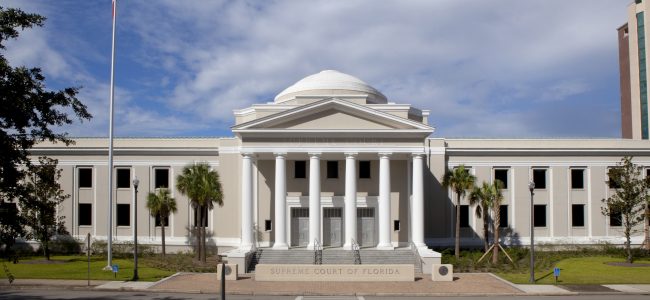BlogLine
Supreme Court of Florida rules bad faith settlements are not collateral sources
11/27/23

By: Catherine M. Carson-Freymann
In Alberta S. Ellison v. Randy Willoughby, No. SC2021-1580, Supreme Court of Florida (November 2, 2023), the Supreme Court of Florida delivered a ruling with significant implications for insurance companies. The court determined that bad faith settlement proceeds from a plaintiff’s uninsured motorist insurer should not be considered a “collateral source” under section 768.76(2)(a)(2) of the Florida Statutes.
The case in question involved plaintiff Willoughby, who filed suit against the at-fault defendant, Ellison, alleging he sustained serious injuries in a motor vehicle accident. Willoughby not only sought damages from Ellison but also filed a lawsuit against his uninsured motorist (UM) carrier for both the $10,000 policy limits and bad faith damages. The UM carrier eventually settled for $4 million before the trial, with no specific allocation of proceeds to distinct categories of damages.
At trial the jury returned a verdict of $30 million against Ellison. Subsequently, Ellison sought to set off the $4 million UM settlement against the $30 million verdict. However, the trial court denied this motion. The Second District Court of Appeal affirmed the denial and certified the following two-part question as one of great importance to the Florida Supreme Court:
Is a settlement payment made by an uninsured motorist insurer to settle a first-party bad faith claim subject to setoff under section 768.041(2) or a collateral source within the meaning of section 768.76?
The court first noted that Ellison did not request setoff under section 768.041(2) and quashed the portion of the Second DCA’s decision that addressed that issue.
Focusing on the application of section 768.76, the court ruled that a settlement payment made by an uninsured motorist insurer to settle a first-party bad faith claim does not meet the criteria for a collateral source. The court referenced section 768.76(1), which mandates a reduction in the awarded damages by the total amounts paid for the benefit of the claimant from all collateral sources. It states in part:
In any action to which this part applies in which liability is admitted or is determined by the trier of fact and in which damages are awarded to compensate the claimant for losses sustained, the court shall reduce the amount of such award by the total of all amounts which have been paid for the benefit of the claimant, or which are otherwise available to the claimant, from all collateral sources; however, there shall be no reduction for collateral sources for which a subrogation or reimbursement right exists.
Section 768.76(2)(a)2 goes on to define “collateral sources” in part as “automobile accident insurance that provides health benefits or income disability coverage; and any other similar insurance benefits, except life insurance benefits available to the claimant, whether purchased by her or him or provided by others.” The Court determined that bad faith damages do not fit this definition because they aren’t “benefits” of the insurance contract but a statutory penalty.
This decision underscores the evolving nature of insurance law in Florida. It the wake of tort reform we can expect to see even more decisions with fresh interpretations of new (and old) laws. Ultimately, this decision underscores the evolving nature of insurance law in Florida, emphasizing the importance of vigilance and adaptability in the face of a changing legal landscape.
For more information, please contact Catherine M. Carson-Freymann at catherine.carson-freymann@fmglaw.com or your local FMG attorney.
Share
Save Print